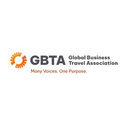GBTA Foundation Research Reveals Impact of Business Travel on U.S. Economy and Jobs
Business Travel Spending Within the U.S. Totaled $384 Billion USD in 2012 - Business Travel Contributed $491 Billion to U.S. GDP in 2012

Alexandria, VA – A new report issued today by the Global Business Travel Association
(GBTA) Foundation – the voice of the global business travel industry – highlights the positive economic impact that road warriors have on the nation’s economy and explores the quantitative impact business travel has on the U.S. economy. According to the study, business travel was responsible for about 3 percent of U.S. GDP in 2012 ($491 billion), and for every 1 percent increase in business travel spending, the U.S. economy gains an additional 71,000 jobs, nearly $5 billion in GDP, $3 billion in wages and $1.2 billion in tax collections.The impact study also found that in 2012 the nation’s businesses spent $384 billion to
send travelers out on the road on 452 million business trips. The study shows that the business travel industry supports 7.1 million jobs and generated $118 billion in federal, state and local taxes.“While the road warriors’ focus is on closing deals, it comes as no surprise the huge
impact the business travel industry has on the nation’s economy,” said Michael W. McCormick, executive director and COO, GBTA. “This study shows business travelers are spending hundreds of billions on hotels, airports and restaurants. And, if governments enacted pro-business traveler policies, companies would be incentivized towards optimal travel expenditures levels. This would add another $13 billion in travel spending and yield $915 billion in new sales and nearly $250 billion in additional gross profit.”“Business travel matters,” said Mike Fegley, vice president, America sales for
Intercontinental Hotels Group, the corporate sponsor of this study. “Business travel is a driver of the economy and these numbers solidify its importance. The study shows we can really move the needle of the economy by getting out on the road for face to face meetings conducting business and generating jobs.”“Business travel is an important aspect of travel and tourism,” said Rep. Gus Bilirakis
(R-FL). “As the Global Business Travel Association’s study notes, nearly $500 billion was contributed to the U.S. economy by business travel alone in 2012. That same year, Florida’s tourism industry supported over one million employees and contributed over $51 billion to Florida’s economy. Business travel and the tourism industries are a crux of economic vitality across the country, and especially in states like Florida. The bottom line is that both international travel to the United States and domestic travel within our nation create jobs. As Co-Chair of the Congressional Travel and Tourism Caucus, I will continue to work to foster an economic climate that promotes travel and economic vitality.”“Electronic communication is important to our economy but it cannot completely replace
the personal connection formed by meeting face to face,” said Rep. Sam Farr, D-Calif. and co-chair of the Congressional Travel and Tourism Caucus. “Business travelers play an important role in building our economy beyond just the deals they strike with a hand shake. Their time on the road supports the entire travel industry; injecting needed dollars into local businesses and creating jobs in every community across the United States.”More study highlights include:
- In 2012, U.S. domestic business travelers spent an average of $540 per trip, including $147 on lodging, $230 on transportation, $100 on food and beverage, $28 on shopping and $22 on entertainment. These averages consider all trips – day and overnight – and all methods of transportation – air, rail, personal auto and rental car. Business trips that utilized air travel as the primary mode of transportation averaged $1,100 in total spending per trip.
- Business travel in the U.S. contributed $491 billion to U.S. GDP in 2012. Essentially, every dollar of business travel spending generated about $1.28 in GDP. Of the $491 billion total, $208 billion accrued directly to businesses that served travelers or meeting attendees. The supply chain for these businesses received an additional indirect contribution of $120.5 billion. Finally, the downstream spending of business-travel supported wages generated an induced contribution of $162.8 billion.
- The average business trip lasts 1.75 days and covers 268 miles (945 miles if primary transportation is by air). The typical U.S. business traveler takes about four daytrips and two overnight trips per month. Over the course of a year, a road warrior on average spends 19 nights in a hotel.
- U.S. business travelers are most likely to be mid-career (age 35-55) and be employed in a managerial or professional position. Business travelers have an average annual household income of $102,329 and almost three-quarters of business travelers are married.
Methodology
The economic impacts described in this study were estimated by
About the GBTA Foundation
The GBTA Foundation is the
About Intercontinental Hotels Group
IHG (InterContinental
IHG manages IHG® Rewards Club, the world’s first and largest hotel loyalty
program with over 77 million members worldwide. The program was relaunched in July 2013, offering enhanced benefits for members including free internet across all hotels, globally.IHG franchises, leases, manages or owns over 4,700 hotels and 687,000 guest
rooms in nearly 100 countries and territories. With more than 1,100 hotels in its development pipeline, IHG expects to recruit around 90,000 people into additional roles across its estate over the next few years.InterContinental Hotels Group PLC is the Group’s holding company and is
incorporated in Great Britain and registered in England and Wales.